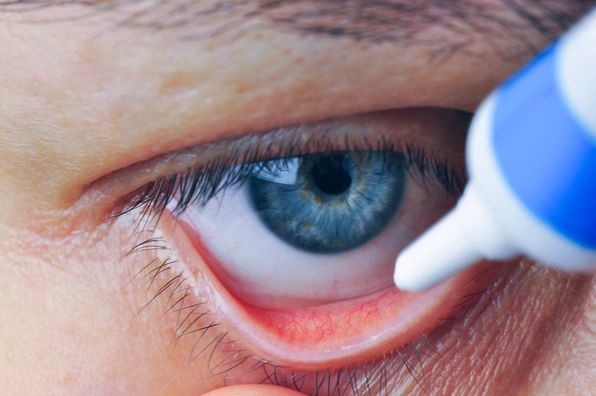The endocrine system secretes 50 different hormones throughout your body and each plays a vital role in maintaining homeostasis, or stable body functions.
Due to the integral role of each hormone, it’s no surprise that a slight imbalance of one hormone could be the catalyst of your nagging headache, unpredictable mood swings, increased sweating or weight gain.
The following are five hormones and the most common imbalances in both men and women.
1. Cortisol
What is cortisol?
Cortisol is a hormone produced in your adrenal gland that helps regulate your blood sugar, metabolism, inflammation and memory formation. Most commonly referred to as the ‘stress hormone,’ cortisol is released during times of stress or crisis and, as a result, temporarily shuts down your digestion and reproduction systems.
What are the symptoms of high cortisol?
If your adrenal gland is producing too much cortisol, you may experience symptoms such as a flushed, round face, high blood pressure, increased thirst, irregular menstruation, mood swings, muscle weakness, reduced sex drive and/or weight gain. If too much cortisol is secreted over a prolonged period of time, it may increase your risk of developing Cushing’s syndrome.
What are the symptoms of low cortisol?
When too little cortisol is secreted, you may experience symptoms including dizziness, fatigue, mood swings, muscle weakness and/or weight loss. Too little cortisol may be caused by Addison’s disease, a condition where your adrenal gland doesn’t secrete enough hormones.
2. Estrogen
What is estrogen?
Estrogen is one of the main sex hormones in women. While men have estrogen too, they secrete smaller amounts and do not experience the same effects from estrogen that women do. In women, estrogen is responsible for the physical changes during puberty, regulating your menstrual cycle and supporting your bones, heart and mood during pregnancy. In both men and women, estrogen helps to regulate cholesterol and bone health.
What are the symptoms of high estrogen?
Too much estrogen in women may result in breast lumps, fatigue, feeling depressed or anxiety, reduced sex drive and/or weight gain. With men, high estrogen can produce enlarged pectorals, infertility and/or a reduced sex drive. High levels of estrogen could be the result of a temporary, natural fluctuation of your hormones or a response to medication, such as contraceptives or certain antibiotics.
What are the symptoms of low estrogen?
Low estrogen in women is typically a result of menopause. Symptoms may include dry skin, an irregular menstrual cycle, hot flashes, mood swings and/or reduced sex drive. When men secrete too little estrogen, they may experience reduced sex drive and weight gain.
3. Insulin
What is insulin?
The hormone insulin is produced by the pancreas and allows your muscles, fat and liver to absorb glucose, also referred to as blood sugar, and break down fat and protein in order to regulate your metabolic process.
What are the symptoms of high insulin?
If the body secretes too much insulin, or if someone with diabetes injects more insulin than needed, they may develop hypoglycemia or abnormally low blood sugar levels. The symptoms of hypoglycemia may include anxiety, dizziness, heart palpitations, hunger, loss of facial color, sweating and/or tremors. To increase blood sugar levels, you can eat carbohydrate-rich foods or drink sugary beverages.
What are the symptoms of low insulin?
When your pancreas is not producing enough insulin, it is typically a result of type 1 or type 2 diabetes, which leads to high blood sugar. Symptoms of high blood sugar may include dehydration, dizziness, fatigue, frequent urination, hunger and/or weight loss. Treatment for people with diabetes can include insulin injections or other medications. Your physician will determine the best treatment for your condition.
4. Progesterone
What is progesterone?
The progesterone hormone is generally thought to be only present in women, but men have progesterone as well. For women, progesterone is crucial in menstruation and supporting the early stages of pregnancy. For men, progesterone helps support fertility and balances the effects of estrogen on the body.
What are the symptoms of high progesterone?
In men, high progesterone levels will increase estrogen levels, which can result in symptoms such as depression, fatigue and the development of heart conditions. For women, high progesterone is associated with symptoms including anxiety, bloating, depression, reduced sex drive and/or weight fluctuations.
What are the symptoms of low progesterone?
Low progesterone levels in men may produce symptoms including bone loss, erectile dysfunction, fatigue, hair loss and/or weight gain. When women have low levels of progesterone, they may experience abnormal uterine bleeding, an irregular menstrual cycle, frequent miscarriages, pain during pregnancy, reduced sex drive and/or weight gain.
5. Testosterone
What is testosterone?
Testosterone is the main sex hormone in men. While women also have testosterone, they have smaller amounts and do not experience the same effects from testosterone that men do. For men, testosterone supports the physical changes during puberty, such as the deepening of the voice and growth of the genitals, hair and muscles. In women, testosterone supports bone health and reproductive tissue.
What are the symptoms of high testosterone?
It is easier to determine when a child has too much testosterone because it typically results in precocious puberty or early development of sexual characteristics. When an adult develops high testosterone levels, it may increase the chance of infertility at a younger age.
What are the symptoms of low testosterone?
Signs of low testosterone levels in men may include enlarged pectorals, low sperm count, mood swings, poor erections and/or a reduced sex drive. Women may experience fatigue, muscle weakness, reduced sex drive and/or weight gain.
As we age and our bodies change, our hormones fluctuate to adjust to these changes. It is natural to feel some symptoms related to fluctuation in hormones; however, if your symptoms persist or worsen, your primary care physician can help you manage your condition.
If you are concerned about hormone imbalances, schedule an appointment with a primary care provider today.
Health Topics:







